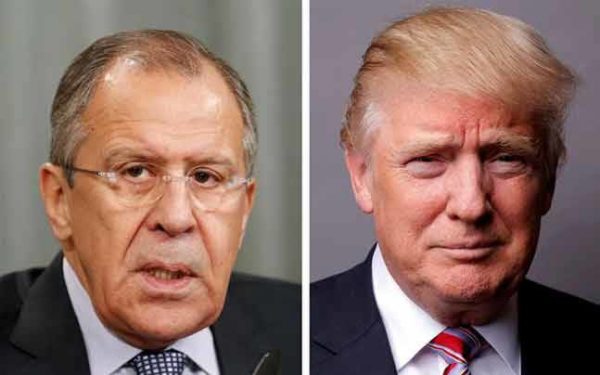US President Donald Trump disclosed highly classified information to the Russian foreign minister during their meeting last week, potentially jeopardizing a source of intelligence about Islamic State, The Washington Post reported on Monday, citing current and former US officials.
Reacting to the newspaper’s report, the Senate’s No. 2 Democrat, Dick Durbin, called Trump’s conduct “dangerous” and reckless,” while the Republican head of the Senate Foreign Relations Committee, Bob Corker, called the allegations “very, very troubling” if true.
The newspaper said the information Trump relayed to Russian Foreign Minister Sergei Lavrov and Russian Ambassador Sergei Kislyak had been provided by a US partner through a highly sensitive intelligence-sharing arrangement.
The partner had not given Washington permission to share the material with Moscow, and Trump’s decision to do so risks cooperation from an ally that has access to the inner workings of the Islamic State militant group, the Post said, citing the unnamed officials.
TRUMP WENT OFF-SCRIPT
During his Oval Office meeting with Lavrov and Kislyak, Trump went off-script and began describing details about an Islamic State threat related to the use of laptop computers on aircraft, the officials told the Post.
In his conversations with the Russian officials, Trump appeared to be boasting about his knowledge of the looming threats, telling them he was briefed on “great intel every day,” an official with knowledge of the exchange said, according to the Post.
While discussing classified matters with an adversary would be illegal for most people, the president has broad authority to declassify government secrets, making it unlikely that Trump’s disclosures broke the law, the Post said.
Trump’s meeting with Lavrov and Kislyak at the White House came a day after he fired FBI Director James Comey, who was leading the agency’s investigation into possible links between Trump’s presidential campaign and Moscow.
‘INTEL SOURCES NOT DISCUSSED’
Asked about the disclosures, Trump’s national security adviser, H.R. McMaster, who participated in the meeting, said no intelligence sources or methods were discussed that were not already known publicly, the Post reported. Asked by Reuters about the Post story, McMaster declined comment.
US officials have told Reuters that US agencies are in the process of drawing up plans to expand a ban on passengers carrying laptop computers onto US-bound flights from several countries on conflict zones due to new intelligence about how militant groups are refining techniques for installing bombs in laptops.
So serious are assessments of the increased threat that Washington is considering banning passengers from several European countries, including Britain, from carrying laptops in a cabin on US-bound flights. The United States has consulted about the intelligence with allied governments and airlines.
One source familiar with the matter told Reuters at least some of the intelligence that went into the planned laptop ban expansion came from a US commando raid on an al Qaeda camp in Yemen in which a US special operator was killed.
The source said one of the most troubling aspects of the new intelligence was that it showed that Yemen-based al Qaeda in the Arabian Peninsula had figured out how to produce sheets of explosives so thin they could be concealed in the insides of a laptop and would be very hard to detect.






Leave a reply